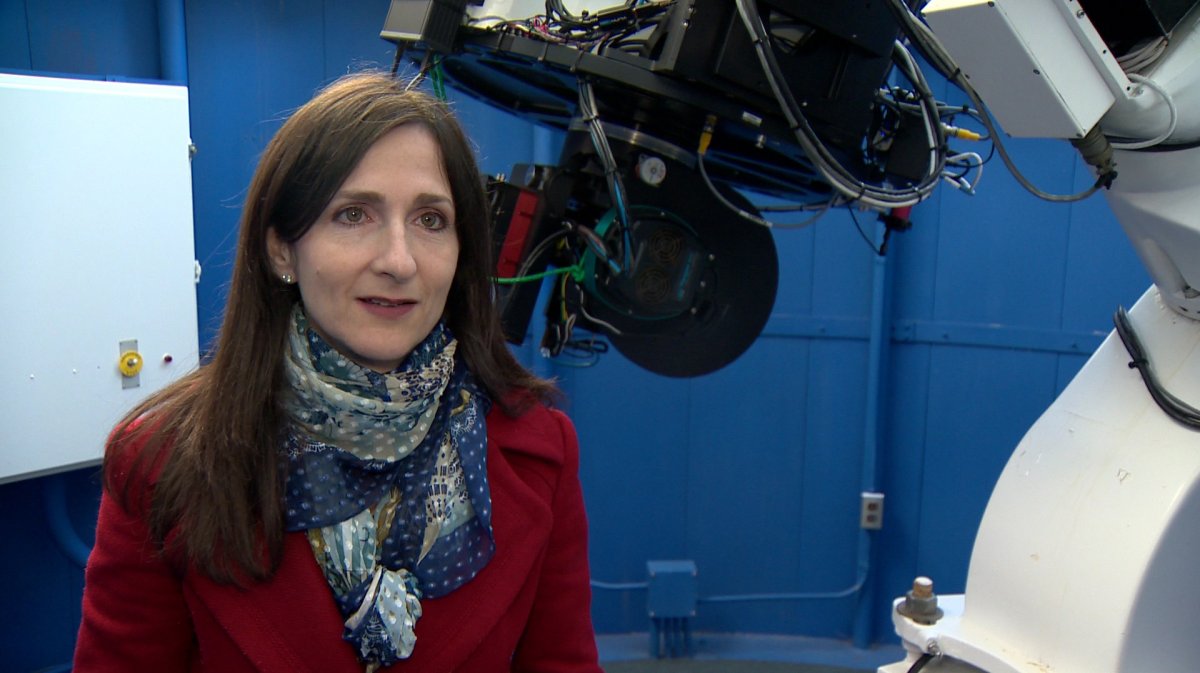Sara Seager, a professor of planetary science at Massachusetts Institute of Technology, is in Halifax on Friday to present a sold-out lecture at Saint Mary’s University.

The two-hour 2017 Dan MacLennan lecture, which starts at 7 p.m., is titled ‘Exoplanets and the Search for Habitable Worlds.’
Seager spoke with Global News. Here is part of the interview, which has been edited for length.
Why are exoplanets interesting to you?
In my work, we’re not trying to find little green humanoids, but we’re trying to understand are there planets like Earth out there that could be suitable for life, and do any of these planets even host life and give that life away by signs of gasses in the atmosphere that don’t belong?
What would be necessary on a planet to find life there?
We don’t know all the answers, so, for now, we’re focusing on what Earth has: liquid water, a liquid where molecules can react and form more complicated molecules; the right temperature, so water can exist; and energy, like from our sun or a star that can supply energy for life’s reactions.
When do you think we will discover life on another planet? Do you think we’re anywhere at all close?

Get breaking National news
I do. We know that small planets are extremely common. We’re just at the verge of being able to look at atmospheres and see signs of water vapour and perhaps signs of oxygen. I don’t have a crystal ball, so I can’t answer when we will find signs of other life but, very soon, we’ll have the capabilities to find it. If life is very common and many planets have life, we have a great shot at finding signs of life by way of gasses in the atmosphere in year or two from now.
READ MORE: Humanity has 100 years to colonize other planets or die out: Stephen Hawking
What do you think the reaction will be like once, or if, we find alien life?
It’s like if you see a whiff of smoke: What is that? Is there a raging forest fire really far away? Or someone smoking a cigarette down the street? It will take us a while to sort of sort through the options and to be really sure that it’s life and not just something else.
What’s the most fascinating fact about exoplanets, or space in general, to you?
When you look at the sky, the stars are just everywhere, and what’s so amazing to me is just how far away they are. Our nearest star is four light-years away, and to get there with current technology, it could take us tens of thousands of years. The most amazing thing to me is just how vast the universe is.
READ MORE: Why you should be proud of Canadarm, a game-changer for space
- Donald Trump claims B.C.’s ‘very large faucet’ could help California’s water woes
- Canada must speed up progress to hit its 2030 emissions target: report
- U.S. TikTok ban case pits free speech vs. national security. Which will win?
- Meta bans RT, other Russian state media outlets over ‘foreign interference’
How did you get into this field of study?
I always loved the stars and, when I was growing up in Toronto, I realized that I could be an astronomer for a job. Eventually, I went to undergraduate and then graduate school and just as I was in graduate school, about 20 years ago, exoplanets orbiting stars were first discovered. I took a chance on the field when it was really going nowhere, and that’s how I got involved.
What do you hope to accomplish in your work before your career ends?
I’d like the work that I do help it become common knowledge that there are not only planets out there but that, in the future, planets like Earth are out there. I’d like people to be able to take their children and grandchildren and young people out to a dark sky and look at the night sky and say, ‘Wow, that star has a planet like Earth.’








Comments